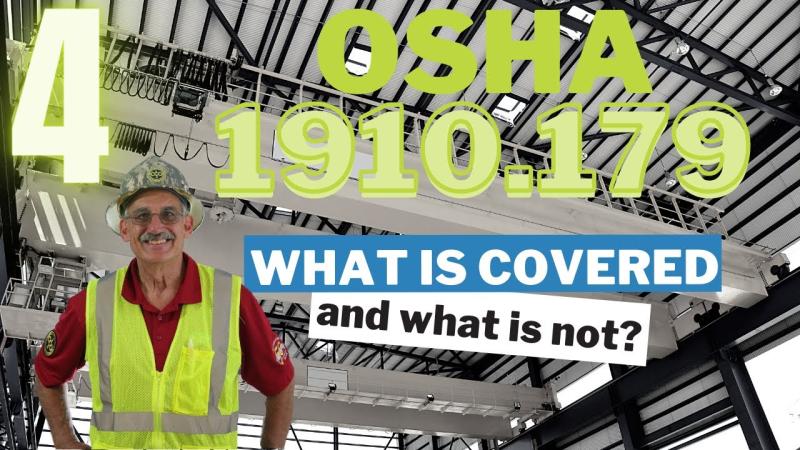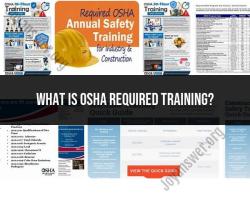What industries are not covered by OSHA?
While the Occupational Safety and Health Administration (OSHA) in the United States generally covers a wide range of industries and workplaces, there are some exemptions and specific situations where OSHA may not have jurisdiction. Industries and workplaces that fall outside OSHA coverage include:
Self-Employed Individuals:
- OSHA generally does not cover self-employed individuals or workplaces with no employees.
Farms with Fewer Than 10 Employees:
- Small farms with fewer than 10 employees and that do not maintain temporary labor camps are exempt from certain OSHA regulations.
Family-Owned Businesses:
- OSHA does not cover workplaces where all employees are related to the employer and the business is not incorporated as a corporation, limited liability company (LLC), or other legal entity.
Workplaces Regulated by Other Federal Agencies:
- Some industries are regulated by other federal agencies, and OSHA may not have jurisdiction over specific safety and health issues in those workplaces. For example, mine safety is regulated by the Mine Safety and Health Administration (MSHA), and nuclear facilities are regulated by the Nuclear Regulatory Commission (NRC).
Certain Public Sector Employers:
- State and local government employees may be covered by state OSHA plans rather than federal OSHA. Federal OSHA does not cover state and local government employees in states that operate their own occupational safety and health programs approved by OSHA.
Immediate Family Members:
- OSHA does not cover employees who are immediate family members of farm employers and are involved in farm operations.
Employees Covered by Other Federal Agencies:
- Employees engaged in certain maritime activities (e.g., longshoremen and shipyard workers) are covered by the Occupational Safety and Health Act of 1970 (OSH Act) but under the jurisdiction of the U.S. Department of Labor, rather than OSHA.
Federal Government Employees:
- OSHA does not cover federal government employees. Instead, federal agencies have their own occupational safety and health programs.
It's important to note that state OSHA plans may have additional or different coverage requirements. Some states operate their own occupational safety and health programs that cover private and public sector employers within the state. Employers should check with their state's OSHA program to understand specific coverage and requirements.
Which industries or sectors are excluded from OSHA coverage?
Several industries or sectors are exempted from Occupational Safety and Health Administration (OSHA) coverage, falling under different regulatory bodies or not requiring any specific safety regulations. Here's a breakdown of the key categories:
1. State and Local Government Workers:
- While not directly covered by Federal OSHA, state and local government workers can still receive protection under their respective state OSHA plans. These plans must be at least as effective as the federal program, and employees have similar rights and protections.
- However, some state and local government agencies, like police and firefighters, might have additional safety regulations specific to their professions, overseen by different agencies.
2. The Self-Employed:
- Individuals working for themselves are not considered "employees" under the Occupational Safety and Health Act and are therefore exempt from OSHA coverage. However, they are still responsible for their own safety and well-being, and some states offer safety resources or programs for self-employed individuals.
3. Immediate Family Members of Farm Employers:
- Spouses, children, and parents working for their family-owned farms are exempt from OSHA coverage. This exemption is based on the idea that family members already have a personal interest in the farm's safety and well-being.
- However, states might have their own regulations or programs to ensure the safety of family members working on farms.
4. Maritime Industry:
- Workers on board commercial vessels, including fishing boats and cargo ships, are not covered by OSHA. Instead, they fall under the jurisdiction of the United States Coast Guard, which has its own set of safety regulations for the maritime industry.
- Similarly, workers on fixed offshore drilling platforms are covered by the Bureau of Safety and Environmental Enforcement (BSEE) under the Department of the Interior.
5. Mining Industry:
- Mine workers are not covered by OSHA, but have separate safety regulations under the Mine Safety and Health Administration (MSHA) within the Department of Labor. MSHA sets standards for safety and health in mines, including underground mines, surface mines, and sand and gravel pits.
6. Federal Agencies and Employees:
- Federal employees, including those working in military bases and government facilities, are not covered by OSHA. Instead, they are protected by their agencies' own safety and health programs, which must meet or exceed OSHA standards.
7. Certain Agricultural Operations:
- Small farms with 10 or fewer employees are exempt from most OSHA record-keeping requirements. However, they are still subject to general duty clause, requiring employers to provide a workplace free from recognized hazards that cause death or serious physical harm.
Remember, these are just the main categories, and specific exemptions or nuances might exist depending on the industry and state regulations. If you have any questions about your specific situation or need further clarification on OSHA coverage, it's best to consult with OSHA or your state's labor department directly.
It's important to note that even though some industries or workers might be exempt from OSHA coverage, they are not exempt from ensuring a safe and healthy workplace. Other regulations, industry best practices, and ethical considerations still play a crucial role in protecting workers from harm.







